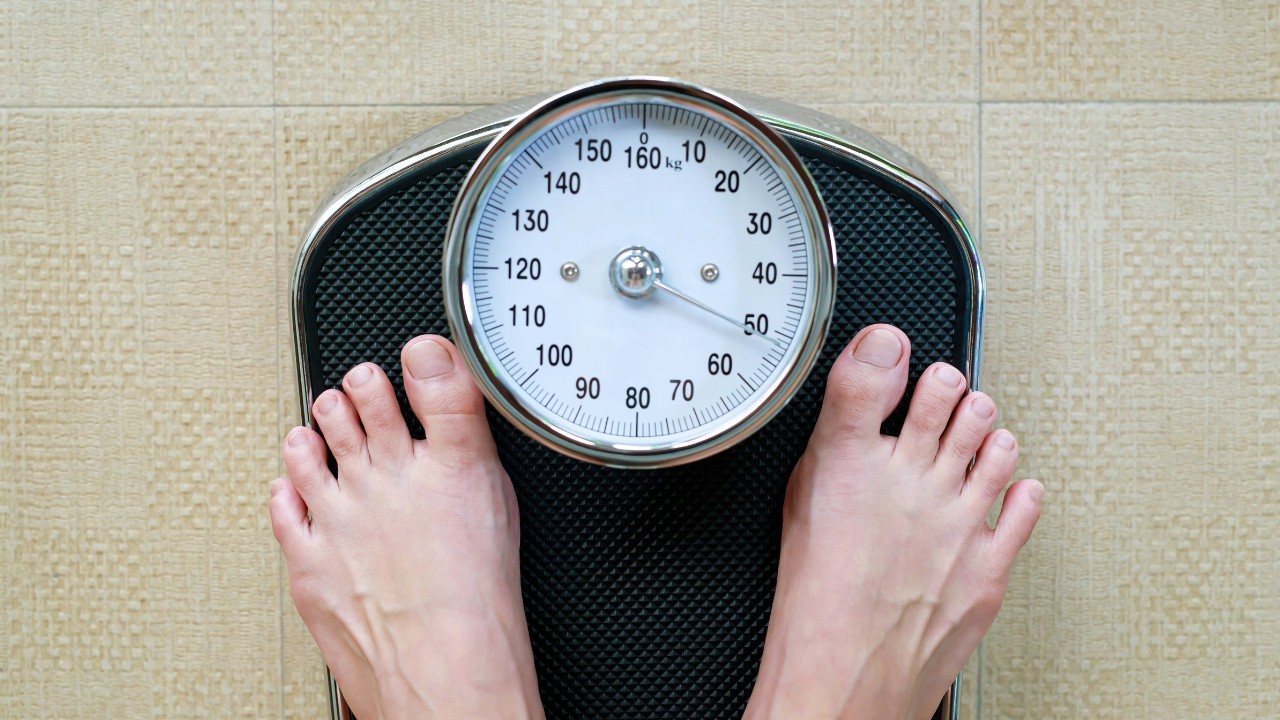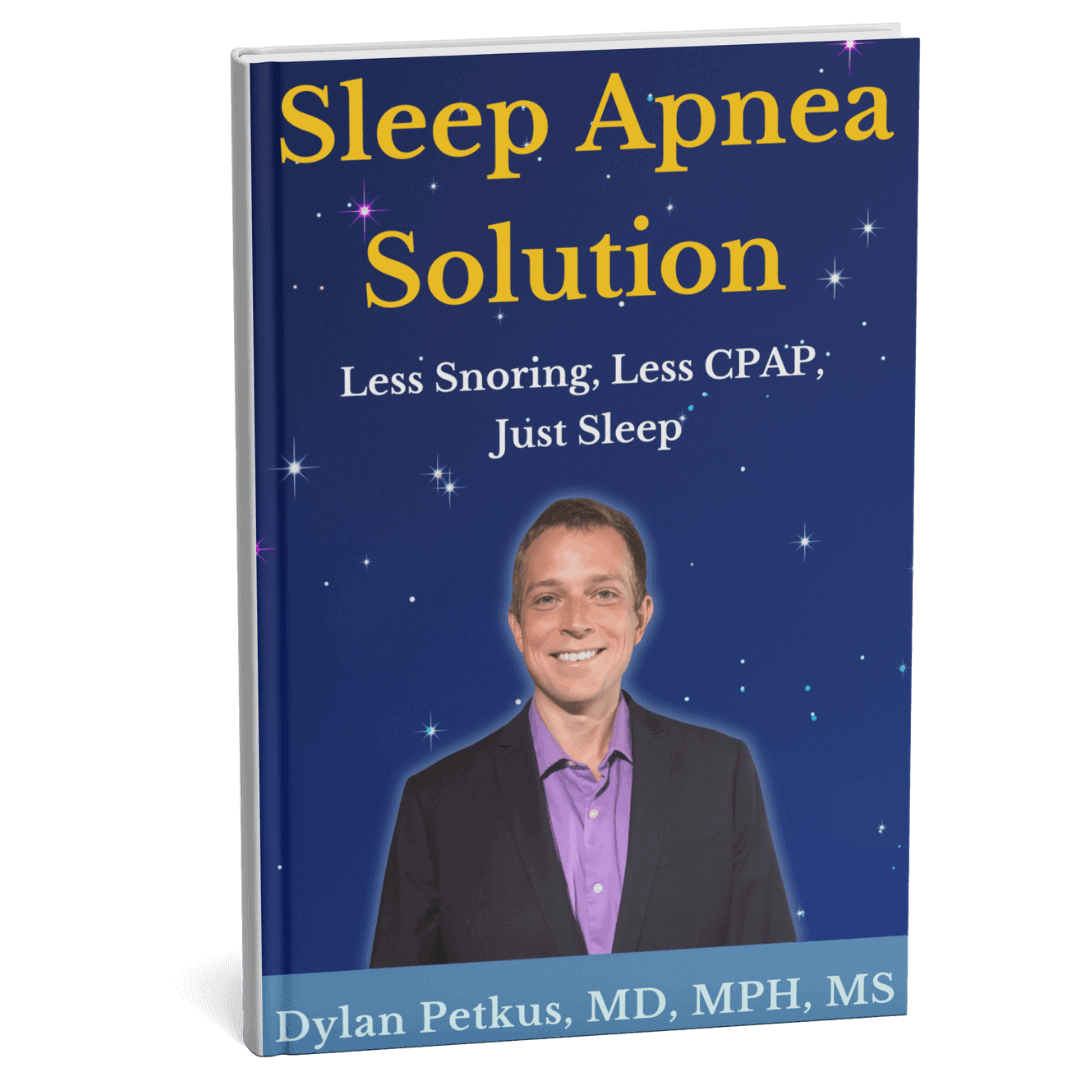
If, like many sleep apnea sufferers, you have read countless sleep apnea books and resources that inform you that you need to lose weight or that weight loss will ‘reverse’ your symptoms or cure the condition, you’re already aware that this isn’t true. Healthy, sustained weight loss can benefit some people with sleep apnea who are overweight as extra weight can add pressure, which further restricts your airways–but it is essential to reiterate that there is no proven cure, nor is dramatic weight loss always advisable.
In this post, we’ll explore the relationship between weight and sleep apnea and clarify how anyone, regardless of weight, can help restore their natural nighttime breathing!
Why Do Some Sleep Apnea Guides Recommend Losing Weight?
While we’ve cleared up the misconception that weight loss can somehow reverse sleep apnea, there is medical research to indicate that in obese sleep apnea patients, a degree of well-managed weight loss can assist in a reduction in the severity of their symptoms. Research by the Sleep Foundation tells us that losing 10% to 15% of body mass in overweight people can lessen symptoms of obstructive sleep apnea by as much as 50%.
However, not every sleep apnea sufferer will need to lose any weight, and in some cases, assuming that weight loss is the key could even be harmful, especially for underweight people who may benefit far more from focusing on balanced nutrition and healthy activity levels.
How many people have sleep apnea thought to be linked to obesity? An article published by the National Library of Medicine found that the risk of sleep apnea is roughly 25% across the population but rises to 45% in people with obesity. This means that if you suffer from sleep apnea and have an opportunity to actively target your symptoms by working towards a healthier diet and more physical movement, this could help–but it is not a cure, nor is it necessary for everybody.

How Does Being Overweight Exacerbate Sleep Apnea?
As we’ve seen, carrying extra weight can increase the chance of developing sleep apnea. It can also impact the symptoms you experience, where a narrow or blocked airway causes disturbed breathing during the night.
The challenge concerns pharyngeal fat, which can cause a blockage or worsen airway obstruction in people with sleep apnea. Other problems associated with obesity and sleep apnea occur because the additional weight adds pressure to the chest wall, reducing lung capacity.
A greater blockage or narrowing in the airway and a reduced lung capacity means your airflow is more disrupted than expected, exaggerating symptoms such as insomnia, constant nighttime waking, breathlessness and exhaustion, stress, headaches, and chronic fatigue. Another complexity for sleep apnea specialists is that some people who are initially healthy and active find that sleep apnea contributes to weight gain.
Sleep deprivation, particularly over extended periods, can harm our wellbeing and cause us to produce lower levels of the hormone leptin, which maintains and restricts our appetite. It can also mean we produce more ghrelin, a hormone that activates our appetite. With less energy to exercise or move, this can make people with sleep apnea more susceptible to weight gain due to increased hunger and less energy for movement.
How to Boost Natural Nighttime Breathing to Help With Sleep Apnea Symptoms

If you believe you would benefit from losing weight, the first step is to speak with your physician or consultant. This may be crucial if you have other health conditions or dietary requirements. Weight loss can help, but it should be approached with caution and care to maintain your overall health.
From there, we’d suggest you consider a series of advantageous steps you can take to help promote healthy breathing, including:
- Conducting a Sleep Apnea Assessment, to gain actionable insights into the condition
- Following tried and tested breathing audios, which teach routines and techniques to relax and slow your breathing
- Implementing good nutrition and using protein-rich meals and snacks that assist with healthier sleep
- Resetting your sleep environment and practicing proven sleep hygiene steps to support your efforts
You’ll find all these resources via the Optimal Circadian Health website, along with downloadable PDFs and links to our latest publication, Sleep Apnea Solution, packed with knowledge and guides for your convenience!
References:
- Marshall NS et al. Sleep apnea and 20-year follow-up for all-cause mortality, stroke, and cancer incidence in the Busselton Health Study cohort. J Clin Sleep Med. 2014;10(4):355-362.



